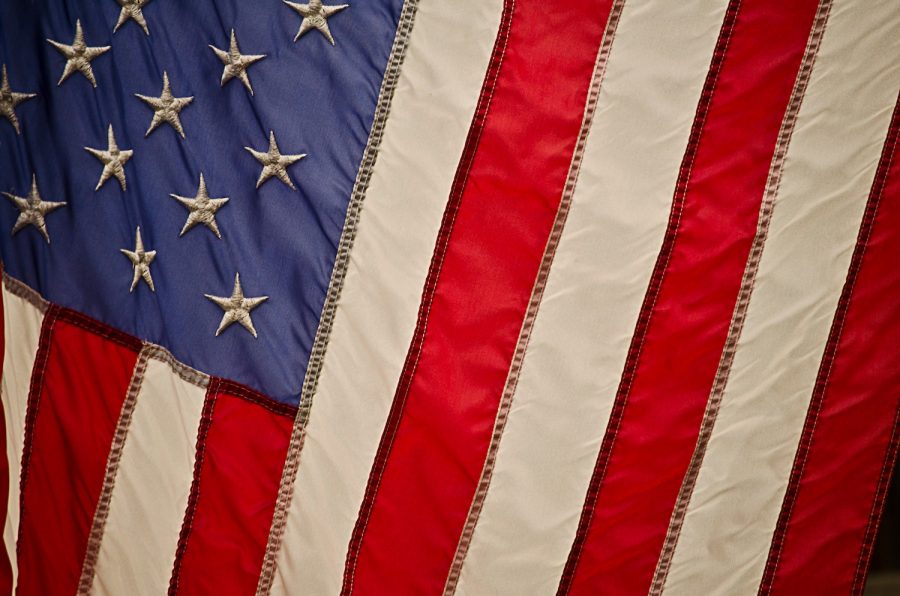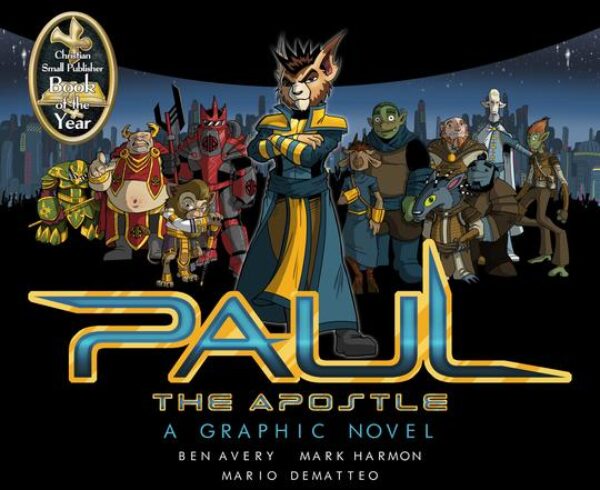In the history of ideas, few theories have had the staying power of the Great Chain of Being—the idea that we live in a universe in which one’s position is fixed by one’s status. For some people, that’s very reassuring. As Mel Brooks observed, it’s good to be the king. If, on the other hand, you’re just a serf, you’re not to worry. That’s just where you’re supposed to be in a Great Chain of Being ordained by God himself. That was Pope’s point in the Essay on Man:
Order is Heaven’s first law; and this confest,
Some are, and must be, greater than the rest,
More rich, more wise.
When people looked to theologians rather than scientists to give meaning to a confused world, the Great Chain of Being offered the consolation of a unified explanation of everything. From God himself at the apex down to mere earth below, all that is or could be has its established and immovable place. Below God there are hierarchies of angels, pure spirits; and below them man, both eternal spirit and fallible body. Still lower are soulless animals with the power of motion, and lower still are immobile plants with the power of growth. At the very bottom is earth, mere matter, that has only the attribute of existence.
Amongst humans there are gradations, too—emperors, kings, nobles, knights, freemen, and serfs—and the Great Chain of Being served the double purpose of insulating those on top from peasants with pitchforks below while reassuring those below that their natural desire to move up was nothing more than a snare. As all this was God’s invention, rebellion was both foolish and impious.
We had thought the Great Chain of Being washed away by the rise of science, by 18th-century philosophes such as Voltaire, by Jefferson and the Founders. But we were wrong. As long as there are elites, there will be people who think they deserve their place atop the greasy pole, that resistance is futile, that the underclass must learn where they naturally belong. And that’s what many of our left- and right-wing elites have come to believe.
♦♦♦
For the secular left, the Great Chain needs a bit of reworking. There’s no God, of course, and no angels, but there is a self-conscious progressive elite. In place of God, there’s the academy, itself divided by a class structure as rigid as Burke’s Peerage, and ranked by the decidedly underclass U.S. News and World Report.
Beneath the top schools, like the orders of Seraphim and Cherubim in the angelic hierarchy, are ranged the lesser ones. On meeting each other, the assistant professor at Behemoth State would make a low obeisance to the Ivy-chaired prof, while the Shimer College professor would hug himself with delight if the Yale professor deigned to acknowledge his existence. As a sociologist, James Q. Wilson knew all about the status games academics play. He once told me that he had been a member of three institutions: the Harvard faculty, the U.S. Marine Corps, and the Catholic Church. “I’ll leave it to you to figure out which was the most hierarchical,” he said.
Beneath them, like the serfs of old, are the graduate students, the undergraduates, and then—surprise—lower still is the animal and plant world, and Mother Earth. The non-progressives whom Obama described as clinging to their guns and religion, on the other hand—NASCAR nation, country-music fans, people accounted to be dumb as dirt—count for less than dirt in the eyes of the progressive elite.
If you don’t believe me, look at their policies, in which saving the planet takes precedence over saving ordinary lives. Malaria kills nearly half a million people a year, mainly in sub-Saharan Africa. This can be addressed by spraying with DDT, which never killed anyone. It does kill birds, however, and the progressive worries more about them than he does people.
They’ll tell you it’s because they love the earth. Don’t believe them. One can’t love something that can’t love back. That was the meaning of Cardinal Newman’s motto: cor ad cor loquitur, “heart speaks unto heart.” It’s why you can love your dog but not your goldfish.
One reads about people who’ve married trees, about “eco-sexual” students marrying the Ocean (the Pacific, naturally). It’s all nonsense. It’s as silly as people who tell you they worship an impersonal god. You might as well worship Euclid’s geometry. He might be the ground of your being, but if He’s not a personal God, the God of Abraham, Isaac, and Jacob, not of philosophers and scholars, he’s not a God with whom one can have a personal relationship.
So what’s behind the earth lovers, if it’s not love? Just the opposite. Enmity. Contempt. Derision. The goal is to establish oneself in the pecking order by asserting one’s superiority over conservatives, sincere believers, “white trash,” placing them at a lower level than the plant and animal kingdoms. It’s the ultimate form of passive aggression. It’s the indignation of the social-justice warrior at Yale who asserts her own privilege by asking you to check your privilege. And it’s the product of our factories of hatred, the modern U.S. university.
♦♦♦
For right-wing elites too, there’s a Great Chain of Being. At the very top are a few right-wing academics, the fellows at the well-funded think tanks, the writers at top conservative magazines, and especially the NeverTrumpers. That something might be said for the Republican nominee’s policies—for restrictive immigration laws, for better trade deals, for campaign-finance reform—is mostly ignored. More revealing, however, is what those at the top of the chain say about Trump supporters.
For George Will, they were “invertebrates.” For Charles Murray and Kevin Williamson, the story is one of white working-class vice, of drug use, divorce, and unwed births. If the underclass wasn’t working, that was its fault. After looking at one town, National Review’s Williamson wrote, “the truth about these dysfunctional, downscale communities is that they deserve to die. Economically, they are negative assets. Morally, they are indefensible. … Donald Trump’s speeches make them feel good. So does OxyContin.”
Had the likes of Williamson paid more attention to Trump’s message, they might have realized that he spoke to real middle-class concerns. Our immigration laws are a scandal and effect a wealth transfer from poor to rich native-born Americans. Our tax system has done the same, and our schools betray our students. The perfect Republican idiots looked at the evidence of income immobility in America and blamed it on the move to an information economy, as though the highly mobile countries to which the American Dream has fled—Denmark and Canada—are living in the Stone Age. They were foolish to ignore the voters and more foolish still because they failed to recognize that all the barriers to economic and social mobility, to the American Dream, were created by the left. It was the right’s issue, and they gave it away.
Williamson reminds one of the unfeeling strain in contemporary conservatism. It’s something we’ve seen in Mitt Romney, Ted Cruz, Randians, and not a few libertarians. What Romney and Cruz communicated was a perfect fidelity to right-wing principles and an indifference to people.
In 2011 Romney presented us with a 59-point plan and settled back as though he had just proven that he deserved the office. No one read any of it, however. What we heard instead was his notorious line about the 47 percent who are “takers,” a phrase that came out of the American Enterprise Institute and which doomed his presidential campaign. Nearly half of all Americans were spongers, Romney had said, and these presumably were the sort of people whom he liked to fire. By contrast, Obama told us he had our back. That was a bit of an exaggeration, as it turned out, but Romney lost what should have been an easy Republican win.
Ted Cruz too approached the primaries as though politics were nothing more than ticking off a series of right-wing boxes. He had an extraordinarily efficient team of Washington advisors—but, graced with a face that seemed incapable of a human smile and given to embarrassing and showy displays of Evangelical piety, he was hard for most primary voters to take. His biography revealed an inner life that was not without its moments of warmth and self-deprecating humor, but none of that came across in the campaign.
What Romney and Cruz had promised was growth, more growth, a greater GDP, but none of this much appealed to middle-class voters who thought that all of the growth would go to people at the top of the heap, asset-fund managers like Romney or lawyers like Cruz. Defending free trade, for example, Cruz said correctly that this would be great for American consumers. What he left out was how it would affect American producers, the working men and women whose jobs are lost when factories move to lower-cost nations abroad. That’s not to say that free trade is a net negative, but only that policies can’t be judged without taking into account their distributional effects on all segments of the people.
♦♦♦
In 1845, Benjamin Disraeli, then a society novelist (as well as a politician), shocked his readers when he announced that England was divided into two nations—the rich and the poor. We also are divided into two nations—the intellectuals and la populace, Big Brains versus Little Brains, with the wealth gains going to the former and the smallest of trickle-down kopecks to the latter. Romney and Cruz were obviously members of the Big Brain nation and that’s to their credit, but now we’ve seen a barrier descend between them and the lower classes, like the one described by Disraeli, two nations
between whom there is no intercourse and no sympathy; who are as ignorant of each other’s habits, thoughts, and feelings, as if they were dwellers in different zones, or inhabitants of different planets; who are formed by a different breeding, are fed by a different food, are ordered by different manners, and are not governed by the same laws.
Our intellectuals—a word invented by the repellant and brilliant anti-Dreyfusard Maurice Barrès—live in a bubble, amongst their own kind. They’ll dress differently, eat very different food, laugh at different jokes, attend entirely different schools, and have wholly different leisure activities. They’re far more likely to be liberal than conservative, but whatever their politics they’ll recognize that they have much more in common with each other than with their ostensible political allies amongst the Little Brain populace.
The sense of belonging to a particular class has given us a distinct literature, enjoyed only by the intellectuals. Amy Chua’s Battle Hymn of the Tiger Mother gave away all their tricks to move their children up the Chain, and for this reason was greedily devoured by them. David Brooks’s Bobos in Paradise did the same for their manners and diversions. Earlier still was Richard J. Herrnstein and Charles Murray’s The Bell Curve, which first described the rise of an intellectual class. But intellectuals read it with a guilty pleasure. “How horrible,” they thought, but hugged themselves in delight to find that they belonged to a special, aristocratic class.
There have always been differences between the quick and the slow, but I rather think they mattered less in the past, or at least that we were less divided. In the public school I attended in Canada as a young child, an imbecilic, hydrocephalic boy was one day brought to class. He could not talk, but from the way he smiled he seemed to be very happy to join us. I imagine his parents felt the experience would be good for him, and that our teachers—Sisters of Charity—thought that the experience would be good for us.
2016-conference-ad-finalI’d like to report that the students befriended him, but we didn’t. We were six or seven years of age, and a little shy and formal. And worried, too, perhaps that we’d open ourselves to ridicule if we did so. No one mocked him, but then no one sought him out either. He lasted no more than a week amongst us, and I never knew his name or what happened to him, but since then not a year has passed when I’ve not recalled him.
The Sisters of Charity had a special reverence for the Curé d’Ars, St. Jean-Marie Vianney, a French priest of the early 19th century. The Church has had a good many highly intelligent saints, but the Curé d’Ars wasn’t one of them. He was slow indeed, and scarcely able to master the Latin he needed to become a priest. He was, however, a profoundly holy person, and it was that combination of sanctity and slowness that commended him to the nuns. They gave us relics of his cassocks and encouraged us to share their love for his simple gifts.
I mention these little stories to emphasize how deeply perverse they’ll seem to the modern reader (for all this happened many years ago). Worth today is measured on an IQ scale, not a holiness one. Indeed, the very idea of holiness will seem unintelligible to most people today, the idea that merit attaches to a life devoted to the service of God, quietly, humbly lived in a little village, without television screens to celebrate public displays of virtue. As for my hydrocephalic classmate, many will think it a shame he was not aborted. But then I would have missed the message about the sanctity of life, of all life. And he would have missed his life, which I expect had more moments of holiness than mine ever will. I remember his face, but count it a shame I never knew his name.
I have another reason to mention these stories, for I want to distinguish the radical equality that the Sisters of Charity embraced from the divide between the makers and takers of Mitt Romney and the American Enterprise Institute, between Big and Little Brains. The divide is seen in where you live, the school you went to, the clothes you wear, and the food you eat. It’s also a question of religious belief, for most intellectuals on the right draw their inspiration not from the Judeo-Christian tradition but from abstract theories of natural rights that have little need of God. They revere Jefferson, but as Walter Berns once asked me, just what kind of a god is “Nature and Nature’s God” anyway? At most, He’s Descartes’s god, as seen by Pascal, where he appears in Act I of the drama to give the system a “little push” and then departs the scene. But if that’s all He is, why do we need Him?
♦♦♦
Romney was a bishop in the Mormon Church. Cruz was given to ostentatious displays of religious belief. Few politicians advertise their unbelief. But dig deeper and you’ll find that many right-wing intellectuals are atheists—the Randians, many libertarians, and some of the leading Straussians. We’ve known all this and had thought it didn’t matter. In part that’s because we’ve adopted the rule of etiquette which demands that religious matters are too private to be discussed (which is an excellent rule for dinner parties). We’ve also observed that our atheist friends adhere to a code of honor and morality at least as elevated as that of the loudmouthed believer. Conscious of our own sins, “O God, be merciful to me, a sinner” is the only prayer one should dare utter.
I still think this, but now I begin to think that things are more complicated. However moral and generous the atheist might be, I suspect he’d have a hard time comprehending how I felt about my hydrocephalic schoolmate. I thought my poor classmate had presented me with a moral challenge (which I had failed), but I suspect that natural-rights theorists would think this mere sentimentality. And this I think is a failing on their part. By resting their political beliefs on abstract axioms of natural rights they have subscribed to theories of learned heartlessness; and it is a testament to their personal goodness that they’re better than their theories.
One doesn’t learn empathy or kindness from John Locke. Perhaps it’s not something one learns at all. The natural lawyer says it’s written on one’s heart; the evolutionary biologist says it’s coded in our genes, which perhaps comes down to the same thing. But it’s not to be derived from abstract theories. At best it’s a philosopher’s premise, not his conclusion, as it was for Adam Smith in The Theory of Moral Sentiments. We might get it from our families, or be reminded of it by novelists such as Dickens, Hugo, or E.M. Forster. Mostly, however, we get it from religious education and belief.
The libertarian’s free-market principles explain how we can build a society in which both others and I may flourish. What they don’t explain is why I should care about others. Our Judeo-Christian heritage tells me I should, but this has been overwritten by the secular doctrines of today. Even devout Christians will prefer to speak the language of natural law and natural rights, conceding to the secular left the principle that moral and political arguments can be framed only in terms that might appeal to people of other or no faiths. But in so doing they abandon the firmest and most encompassing foundations of our moral language.
The natural lawyer, who is often an atheist, would have you think that the opposite of natural law is anarchy and nihilism. It’s not. It’s revealed law, the law given to Moses and preached by Christ. The natural-rights theorist can tell you what others owe him, but not what he owes to others save for the thinnest of duties: don’t harm others, don’t steal from them or defraud them. Does that sound like a complete moral code? Does that tell me anything about my duties to my hydrocephalic classmate?
Morality within the limits of reason alone is the morality of an efficient insurance contract: I will help you because it is in my interest to do so, because I expect a return favor from you. It is the morality of pay-for-play, of Peter Schweizer’s Clinton Cash. It is the debased morality that Alexis de Tocqueville saw at the root of the self-help religion of 1830s Protestant America. But morality is not a means but an end in itself, and the goodness I should have shown to my hydrocephalic classmate was its own reward, if any reward there was. The last chapter of Job, if canonical, might nevertheless be regretted.
Kant sought to prove the existence of God from the moral law. He had it backwards. We more readily can infer the moral law from the existence of God. What I learned from my religion is that we all have souls, that we’re all equal in the eyes of God, that the theologian’s Great Chain of Being was a wicked fiction and a betrayal of Christianity, that the lowest of lives is as precious as that of an Ivy League grad. With their egalitarian principles, that’s something the left claims to understand better than the right, and perhaps they do too. What the right had, in place of political egalitarianism, was religion. But what happens when the salt loses its savor, when religious lessons are no longer learned? What one is left with is what Tocqueville—himself a religious skeptic—called the hardest aristocracy that has appeared on earth.
Ah yes, my atheist friends are generally more moral than I am. That’s a distressingly low bar, however. And even if they are privately charitable, we are permitted to wonder what might follow when mere sentiments are unmoored from a faith tradition. My friends are the inheritors of a religious, Western culture in which they live as illegal aliens, enjoying its harvest without planting the seed. A.J. Balfour, the most intelligent of British prime ministers, predicted all of the 20th century’s atrocities when he saw where this might lead:
Their spiritual life is parasitic: it is sheltered by convictions which belong, not to them, but to the society of which they form a part; it is nourished by processes in which they take no share. And when those convictions decay, and those processes come to an end, the alien life which they have maintained can scarce be expected to outlast them.
My atheist friends who themselves adhere to the highest codes of duty and honor might nevertheless want to consider how often they’ve observed antique republican virtue on display on college campuses or on television. What they’ve seen instead, for the most part, is the detritus of a culture that has lost its religious anchoring and with it any semblance of a moral culture.
They have dispensed with God and for their sophistication ask to be accepted by the intellectuals of the left as fellow members of a privileged elite in our Great Chain of Being. But in abandoning the religious tradition of the West, in their contempt for the invertebrates, the OxyContin sniffers, the takers, they reveal the icicle lodged in the conservative heart.
This article originally appeared in The American Conservative. All rights strictly reserved.












